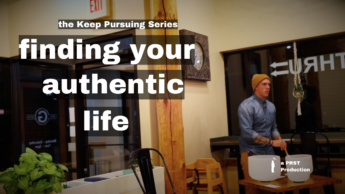“Oh when it all, it all falls down
I’m telling you oh, it all falls down”-Kanye West
10 years ago last week (this was supposed to be done last week) it seemed that the stock market, U.S. economy, and the global financial system might actually all fall down–here’s my recollection of the first two days in a crazy week…
September 15th, 2008
September 15th, 2008 is one of the most significant days in the Great Financial Crisis; it was also a significant day for me personally. After the worst day in the stock market that I’d experienced and a lot of rumors about failing financial companies, my wife and I went out for dinner to celebrate our second anniversary. My wife has a photographic memory–me, not so much. However, I remember that evening like it was yesterday.
We went to Sakura on the north side of Indianapolis for sushi–I even remember where we sat. Despite the bloodbath in the markets that day, my phone was relatively quiet. Well, it was until dinner. I received my first phone call just after our food had arrived, and usually, I’ll let the phone go to voicemail when it is family time. But, it was one of my best clients, so I decided to step away to take his call. Our conversation was brief as I was able to address his concerns and assured him I’d keep him up to date if I thought we needed to make any changes to his plan.
Back to our anniversary dinner.
As we enjoyed our meal and each other’s company, I continued to get news alerts with updates of the deterioration of Lehman, AIG, and other financial companies on my phone. It seemed like things were going to get worse before they got better.
I decided that when we got back home I was going to call all of my clients to let them know I was aware of what was going on, remind them of the plans we had created together, and advise them that we should not react to the news. While I try to be proactive and present for my clients, I try not to be reactive to the markets and headlines, but I would make an exception given the circumstances at the time.
I managed to spend the majority of my anniversary on the phone with clients; I’m lucky to have a supportive wife who understood that I didn’t want to spend the evening on the phone. She knew if I felt the need to call everyone–it was important. As my phone calls continued, I remember having a moment of doubt, “What if I’m giving my client bad advice?” This would not be the last time I’d doubt myself–I was a 26-year-old advisor who had never experienced anything like what was going on. I’d never seen a 500-point down day on the Dow. I’d never seen financial companies like Lehman go bankrupt. I was in uncharted territory without anyone to reassure me that I was telling my clients the right things. Thank God for Nick Murray and his books; otherwise, I may have caved to my own emotions and given my clients bad advice. One of my greatest accomplishments as a financial advisor was keeping my clients focused on their long-term plans and helping them stick to their plans during this time period.
I hung up the phone after my last call drained, but feeling good about the conversations I’d had. My clients and I were all on the same page, they had placed their trust in me, and were in it for the long haul.
September 16, 2008
On the 16th, AIG, one of the world’s largest insurers, was bailed out by the U.S. government and the taxpayers. First Lehman, now AIG…only this time, it was worse…I worked for AIG. Well, I didn’t work for AIG, but for one of its subsidiaries. For 50+ years, this subsidiary was known as VALIC, but shortly before AIG needed to be bailed out, VALIC had undergone a rebrand and emerged as AIG Retirement. The timing of the rebrand could not have been worse. It didn’t take long before AIG Retirement was rebranded back to VALIC as the company tried to distance itself from its parent company–so much for the benefits of having the AIG name associated with the company.
I never worried about my job, despite the focus on AIG and the unknown of what happens to a company bailed out by the U.S. government. I understood VALIC was an asset of AIG and in a fire sale we might be sold off to another company, but I’d still have a job…at least for a while. I never planned on being there my entire career anyway, so I wasn’t worried. I was, however, concerned about my clients’ perception of me. I was worried that my reputation would be tarnished by the actions of AIG, and it was this experience that confirmed that I would one day be on the independent side of the business and probably have my own company.
The 16th concluded with another round of phone calls to clients–this time to discuss AIG.
The Aftermath
Those were a crazy couple of days, and the following months were a rollercoaster; I don’t think I could have ever imagined experiencing anything like The Great Financial Crisis, but in a weird way, I’m glad I did.
As a financial advisor, I had no war wounds. I was 26 years old and had only experienced a good economy and stable stock market; I’d never had my core beliefs as a financial advisor tested, and with The Great Financial Crisis, those beliefs were challenged. I learned a lot about the business and myself from September 2008 through March 2009…
-
Stick to your plan.
Although we experienced the worst recession since the Depression, my clients’ plans had not changed and therefore we needed to stick to their plans. It wasn’t easy, and I’d be lying if I said I didn’t think about making adjustments, but I put my emotions to the side and revisited my beliefs, the data behind it, and Nick Murray. That provided everything I need to keep my clients with their plans, which was critical to their ability to recover with the economy and market.
-
Even if you begin to doubt it, still stick with your plan.
If your plan has been carefully crafted to meet your goals, deviating from it in the midst of The Great Recession (or any down period) is the wrong time to do so. Stick with the plan and re-evaluate after things have recovered.
-
Financial plans require a little faith.
There’s no academic research to back this up, but every financial plan requires a little faith. In the case of The Great Recession, a little faith that the economy and market would eventually recover was necessary to get through it. I often remind clients that we need to control what we can control, and this requires having faith that things out of our control will correct themselves as they always have. I know many won’t like this, but it’s true…sorry.
-
Whenever you can, put yourself in complete control of your reputation.
We’ve seen AIG during The Great Recession and most recently Wells Fargo put their employees’ reputations and career in jeopardy for the sake of profits. It’s not always easy, and I’m thankful to have a career that allows me to be in control of my reputation and destiny. Having been in the corporate world and now owning my own firm, I’ll bank on myself every day of the week.
-
Have a good support system.
I did not have a good professional support system during the Financial Crisis. I had no mentor, no senior advisor, or management that was capable of providing the support and guidance needed to help clients through the recession. Luckily, I was able to muster up the courage to stick with my beliefs, but if I had to do it again I would have found another advisor to confide in and learn from. Fast forward to today, and thanks to my FinTwit family, I have all the support I could ever need.
-
Financial advisors: be present, visible and proactive when it is needed.
As I mentioned before, the phone calls I made on the 15th and 16th, the extra meetings held, and honesty with my clients during The Great Financial Crisis were some of the best decisions I’ve made in my career. When many financial advisors (mostly salespeople) hid, I made the decision to be visible and present when clients needed me; I may not have always had the answer right way, or provided the answer they wanted to hear, but I was determined to do what I believed was best for them. If you’re a financial advisor, the time your clients need you the most is when it’s the hardest to be there–don’t take the easy way out. Be there. Be present. Be honest.
Ten Years Later
A lot has changed over the last 10 years. I’m a little older, just celebrated our twelfth anniversary, have 3 boys, and now have my own firm. The markets continue to do well and the economy appears to be on solid footing. Naturally, there is plenty of talk about when we might see our next recession, but no one really knows when one might come, or how severe it might be.
I do know a couple of things:
- I’ll experience many more recessions in my career.
- I might even see another Great Financial Crisis.
- I’ve experienced it before, and while the cause for the next one will be different, I’ll have even more confidence in my ability to help clients during that time when it comes.
I’m in no rush to do it again, but I’ll be ready.
Disclaimer: Nothing on this blog should be considered advice, or recommendations. If you have questions pertaining to your individual situation you should consult your financial advisor. For all of the disclaimers, please see my disclaimer page.



